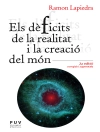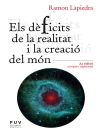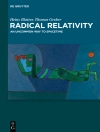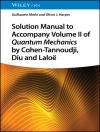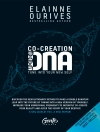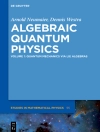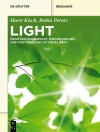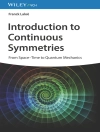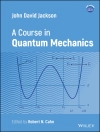Quantum mechanics has shown unprecedented success as a physical theory, but it has forced a new view on the description of physical reality. In recent years, important progress has been achieved both in the theory of open quantum systems and in the experimental realization and control of such systems. A great deal of the new results is concerned with the characterization and quantification of quantum memory effects.
From this perspective, the 684. WE-Heraeus-Seminar has brought together scientists from different communities, both theoretical and experimental, sharing expertise on open quantum systems, as well as the commitment to the understanding of quantum mechanics.
This book consists of many contributions addressing the diversified physics community interested in foundations of quantum mechanics and its applications and it reports about recent results in open quantum systems and their connection with the most advanced experiments testing quantum mechanics.
Table of Content
Non-Markovian dynamics in molecular aggregates: coherence and decoherence in structured environments.- Information-theoretic framework for the study of system-bath correlations in open quantum systems dynamics.- Experimental bounds on the phenomenological parameters of spontaneous wave function collapse models.- On memory kernel master equation.- Mapping quantum collision models into canonical system-reservoir models.- Dynamical detection of system-environment correlations with local operations: Theory and experiments.- Open system dynamics and master equations with good thermodynamical behaviour.- Probing quantum memory effects with high resolution.- Structured open quantum systems.
About the author
Bassano Vacchini is professor at the “Aldo Pontremoli” Physics Department of the University of Milan. His research activity is rooted in the study of foundations of quantum mechanics and the relationship between classical and quantum world with an emphasis on the formulation of quantum mechanics as a probability theory. In this framework he has worked on possible alternative formulations of the measurement process by means of dynamical reduction model in their relationship with microscopic decoherence models. Current activity is devoted on the theoretical study of open quantum systems. His main achievements concern the microscopic derivation and the mathematical characterization of master equations for the description of the open system’s reduced dynamics, encompassing non-Markovian dynamics, obtained via quantum generalizations of classical probabilistic models.
Angelo Bassi is professor at the Department of Physics of the University of Trieste. Hisexpertise is in quantum mechanics and its foundations. Specifically, he worked in models of spontaneous wave function collapse, from different perspectives. From the theoretical point of view, he developed several extensions of these models, to overcome some limitations of the original formulations. From the phenomenological point of view, he contributed in developing novel experimental strategies to test the physical predictions of these models in several situations: astrophysical and cosmological settings, high energy physics, atomic and molecular physics, cold atom physics, opto-mechanics. His research contributed in promoting experiments for testing collapse models over the world. In recent years, he has worked in the interplay between quantum mechanics and gravity.
Heinz-Peter Breuer is professor at the Institute of Physics of the University of Freiburg. He is a world-leading expert in the theory of open quantum systems, and has co-authored one of the mostpopular monographs in this field published with Oxford University Press. Current research topics are Markovian and non-Markovian quantum processes, driven dissipative systems, quantum information theory, classical and quantum correlations, and non-equilibrium dynamics in complex many-body quantum systems. Among the most important achievements in recent years are the characterization, classification and quantification of memory effects in terms of the information flow between open system and its environment, and the development of theoretical and experimental schemes for the local detection of system-environment correlations.



